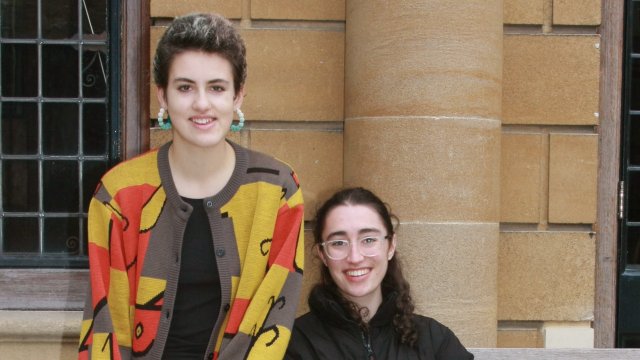Interview with Peter Nitsche-Whitfield in the Sundial February 2023
Peter Nitsche-Whitfield joined Corpus at the beginning of September as its first Sustainability Coordinator, a post shared with Lincoln and Exeter. This is the first time that any Oxford college has created a post solely dedicated to sustainability. He talked to us about the role and what he hopes to achieve.
What is your background and what brings you to Corpus?
I am returning to Oxford after having completed my undergraduate degree in PPE at St Benet’s Hall in 2019. After leaving Oxford, I worked for GermanZero, an NGO which campaigns for Germany to become climate-neutral by 2035. During my time working for GermanZero as Research and Policy Advisor I co-authored a climate action plan with academics and leading climate scientists, giving me an insight into the policies needed to implement an ecological transition in sectors from transport to energy. Following this, I completed a master’s in economics, focusing on sustainable development and the ecological transition in Vienna, Paris and Brussels. I am now looking forward to working with colleagues at Corpus on its journey towards sustainability.
What are your sustainability priorities?
I believe it is vital to address sustainability by tackling all aspects of our ecological crises from the climate emergency, biodiversity collapse, land and resource use, to waste and pollution. Reducing the ecological impacts of Corpus’ operations will thus be my main field of work. This will mean addressing Corpus’ energy use and building stock, travel patterns, food procurement and waste as well as land use and biodiversity. A key priority this winter is to reduce energy use to bring down emissions. This will have the additional welcome effect of reducing the College’s expenditure at a time when a range of global factors have led to exceptionally high energy prices. Lastly, I believe that Corpus should use its standing as a college in a world-renowned university to promote research on sustainability and integrate this into the education of future decision makers.
What will be the most challenging sustainability measure to implement?
The most challenging measures to implement are also the most immediate: reducing consumption of meat and encouraging everyone to dress appropriately for the season – and thus the climate – instead of turning up the heating. To this I would add the longer term goal of decarbonising buildings.
What are you most excited about in this new role?
Engaging with the students is enormously enjoyable, as is working across three colleges, all of which are putting sustainability at the forefront of their operations. I am delighted to be able to build on initiatives at Corpus, such as the biodiversity-friendly garden and thermal efficiency upgrades of buildings.
